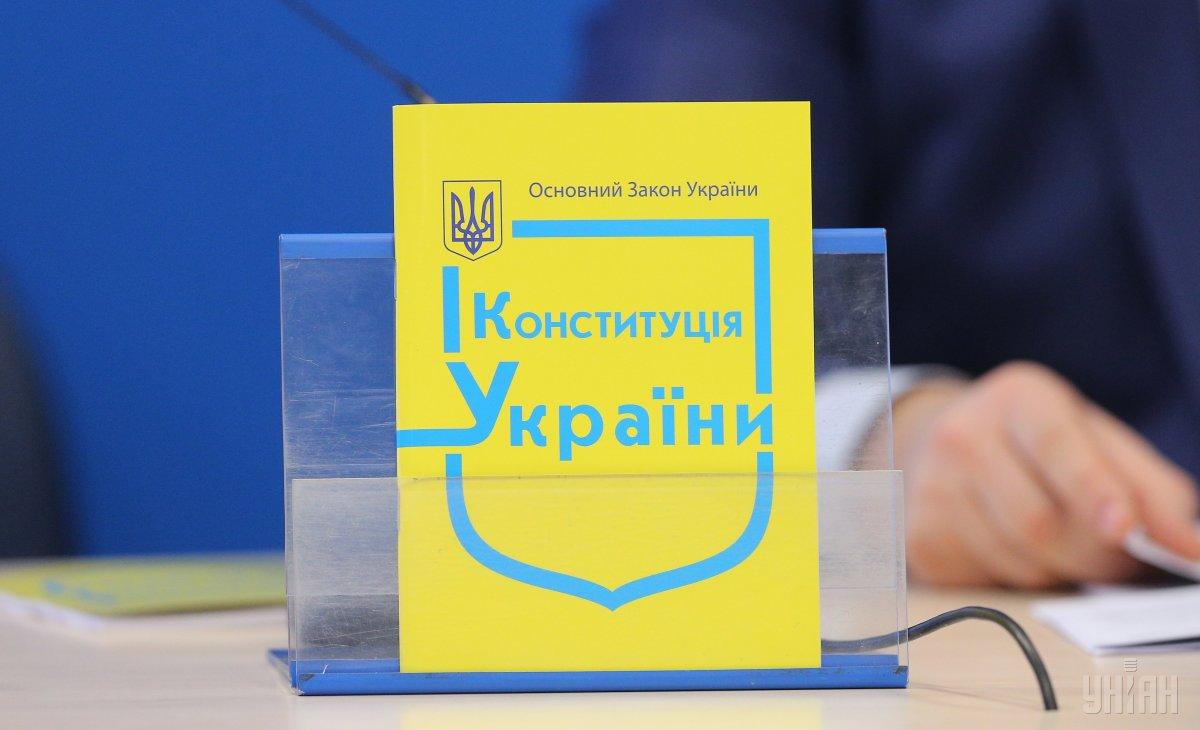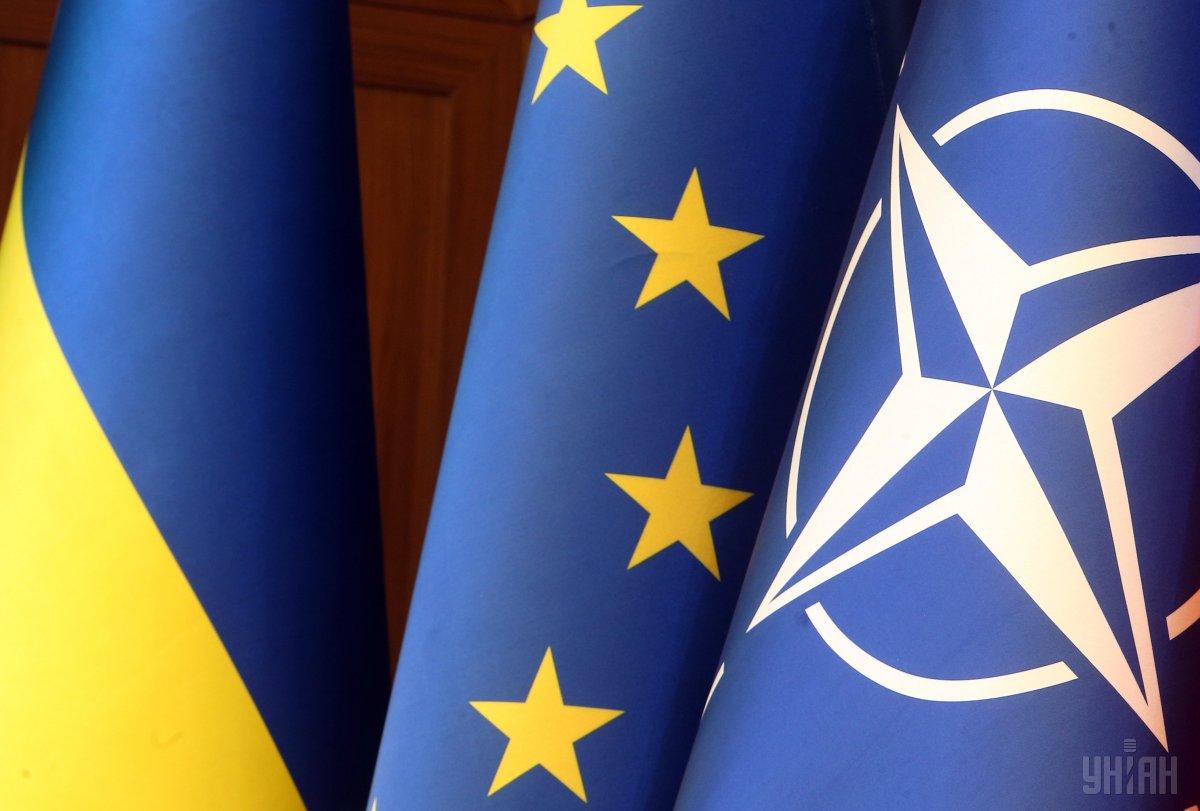
Ukraine's path toward EU and NATO: Point of no return
On Thursday, February 7, the Verkhovna Rada of Ukraine leveled out the “achievements” of the fugitive ex-President Viktor Yanukovych, enshrining in the Constitution of Ukraine the country's strategic course toward the EU and NATO. What do these changes mean and is it possible that Ukraine will one day make another U-turn toward Russia?
More than five years ago, on November 21, 2013, the Cabinet of Ministers of Ukraine under ex-President Viktor Yanukovych suspended preparations for the signing the Association Agreement with the EU, the main tool for bringing Ukraine and the EU closer together, which contributes to deepening political relations, stronger economic ties and mutual respect for common values. Also, the economic part – the Deep and Comprehensive Free Trade Agreement – provides Ukraine with the opportunity to expand trade relations and economic development, opening up new markets and contributing to harmonization of legislation, standards, and regulations in various economic sectors.
The then-government explained the decision by the alleged pressure on the part of Russia, the country Yanukovych, while being at the helm, repeatedly called Ukraine’s key partner. A few months after the “legitimate president” fled from country in 2014, the European Union and Ukraine finally signed the Association Agreement, after which the process of its ratification began.
Almost two years ago, on May 8, 2017, the Verkhovna Rada, having adopted a special bill, also identified joining NATO Ukraine’s main foreign policy goal, stating that among main principles of foreign policy is to deepen cooperation with the Alliance to acquire membership.
The reason for this zeal at the state level was Russian aggression in Donbas and Crimea annexation. After all, once gaining NATO membership, Ukraine will be able to count on military support in fighting Russia off.
Further consolidating Ukraine's aspirations toward the EU and NATO, on September 3 last year, the president submitted to parliament draft law No. 9037 on amending the Constitution of Ukraine.
Article 85 suggests defining that the powers of the Verkhovna Rada include determining the foundations of domestic and foreign policy, implementing the state's strategic course for obtaining full membership of Ukraine in the European Union and the North Atlantic Treaty Organization. Article 102 is supplemented with the provision that "the president of Ukraine is the guarantor of the implementation of the state's strategic course for obtaining Ukraine's full membership in the European Union and the North Atlantic Treaty Organization." Article 116 is amended with a new clause, according to which the Cabinet of Ministers "ensures the implementation of the state's strategic course for obtaining Ukraine's full membership in the European Union and the North Atlantic Treaty Organization." The law proposes that Ukraine's irreversible course toward European and Euro-Atlantic integration be stipulated in the preamble of the Fundamental Law along with the confirmation of European identity of the Ukrainian people.
This amendment, albeit declarative, is extremely important because it actually does not leave future leaders a single chance of reversing the political course and, thus, prevents a possible “Russian revenge”. But that's not all. For future leaders not to be tempted to switch to the Russian side, Clause 14 of Section 15 "Transitional Provisions" is proposed to be excluded from the Constitution. It says that the use of existing military bases on the territory of Ukraine for the temporary stationing of foreign military formations is possible on a lease basis in the manner determined by international treaties of Ukraine ratified by the Verkhovna Rada of Ukraine. In other words, the abolition of this Clause, in fact, implies a complete ban on Russian ships stationing in the Ukrainian territory.
Since the procedure for amending the Constitution provides for the Constitutional Court of Ukraine to issue an opinion on the compliance of the proposed amendments with the norms of the Basic Law, in November last year the bill was voted in first reading and then forwarded to the Constitutional Court, and only after it was green-lighted was it submitted for final voting.
Given the fact that the Ukrainian Constitution was being redrawn so often, during almost every presidential cadence, will the latest changes live on?
Declaration of intent
After the parliament passed the law, the press service of the EU Delegation to Ukraine recalled that the next step should the full implementation of the Ukraine-EU Association Agreement. And to this end, experts are convinced, it is not enough to fix in the Constitution the country's intentions to achieve European integration.
According to the expert with the "Vybir" Center for Structural Political Science, Lilia Brudnytska, at the moment, the amendments to the Constitution resemble a declaration of intent.
“The issue is being raised more often nowadays of the implementation of the Constitution of Ukraine and interpretation of certain provisions of the Basic Law. Some provisions, in fact, have ceased to guarantee what they fix – for example, the one saying people are the source of power in Ukraine, but so far the Verkhovna Rada has not accepted the much-needed instrument of democracy as a referendum on popular initiative. We have a parliamentary-presidential Republic, but there is no law on the impeachment of president. The same fate may await amendments on the country's path toward NATO and the EU, which could also easily become declarative. In Ukraine, the path toward the EU and NATO is enshrined in the law on foreign and domestic policy priorities and in a number of other regulations and, therefore, in combination, these positions will work. But we have determined the path toward the EU and NATO as if these formations are constants, although even the last 5 years have shown that neither the EU nor NATO is everlasting, that they can transform, rearrange, disintegrate, expand, and contract. Therefore, Ukraine, first of all, should have its own national interests, while the course toward the EU or NATO is only a tool to achieve the goal," the expert is convinced.

Managing partner of Pravovest law firm Hlib Sehida, while supporting the amendments to the Constitution, explains that in practice, such changes will give that any law or subordinate act (Cabinet decision, decree of the President, orders of other authorities) can be appealed to the Constitutional Court or blocked at the level of parliamentary committees or the government in case the norms of the law are contrary to the norms of the Constitution (for example, if they suddenly want to adopt a law again on the rejection of integration with E C, or joining any of the organizations that exclude membership in the EU or NATO, the adoption of new standards of the Ministry of Defense, contrary to the standards of the Alliance, etc).
In addition, in his opinion, it will be much more difficult to change the pro-European vector enshrined in the Constitution, since for this it will be necessary to go through the procedure for amending the Constitution again.
Therefore, in order to confirm their determination not only by numerous statements from various tribunes, but also by deeds, the leadership of the country has many more important steps ahead.
“As homework, we still need to further improve our legislation toward the European level and, apart from the Association Agreement with the EU, to effectively complete institutional reforms: first of all, constitutional reform, since without this, the EU will not even speak with Ukraine seriously, limiting their response to declarative resolutions on supporting the country's territorial integrity. Also, Ukraine is yet to complete anti-corruption, judicial, and local government reform," explains political analyst Dmytro Havryliuk.
And if we're seeing some progress in the reform of local government and constitutional reform, there are a lot of issues still unaddressed regarding corruption and judiciary. In particular, the Anti-Corruption Court in Ukraine, which the EU insists that Ukraine launch, actually exists only on paper (even this stage was achieved with great difficulties).
Pro-Russian revenge not ruled out, but complicated
In Ukraine, the revenge of the pro-Russian forces remains a possibility, which the authorities fear. At the same time, with the adoption of constitutional amendments, de facto, it would difficult to steer Ukraine back toward Russia and its Customs Union. However, deputy chief at Ukrainian Institute for Extremism Studies Bohdan Petrenko believes that a hypothetical change of power could lead to the Constitutional Court declaring these changes to unconstitutional. Moreover, the very parliamentary vote, especially in the face of external pressure on the Verkhovna Rada and the existing practice of deputies voting on behalf of their tardy colleagues, could always be questioned.
Moreover, we have already seen cases where laws were declared unconstitutional – for example, controversial legislation on the All-Ukrainian referendum and the so-called Kivalov-Kolesnichenko language law were found to be inconsistent with the Constitution.
“This process will become irreversible after the government fulfills the Association Agreement, Parliament adopts all legislation required, and Ukraine submits an application for EU membership, while NATO does its relevant steps, too. In all other cases, a conditional “revenchists” could adopt some other constitutional changes and return the situation to an initial point, or simply neglect these constitutional provisions,” says Bohdan Bondarenko, an expert on Constitutional Law.
In any case, although a U-turn towards Russia in the country's current position remains possible, it would be extremely complicated. One reason is that, to make it happen, more than 300 parliamentary votes are required – the minimum when voting for constitutional amendments.
Anastasia Zaremba

